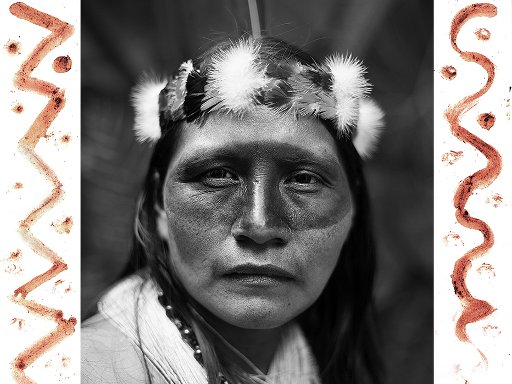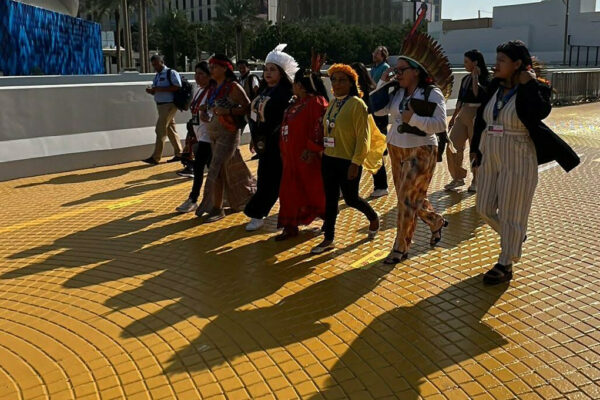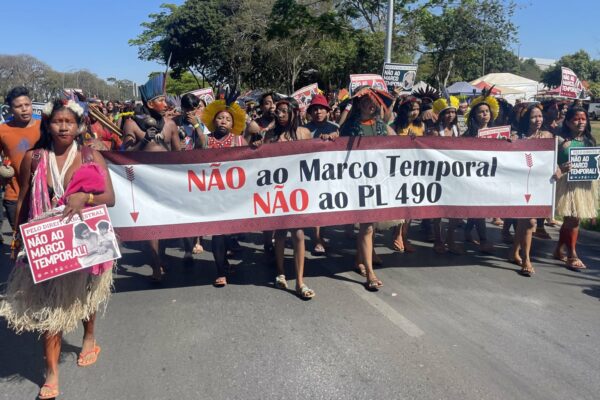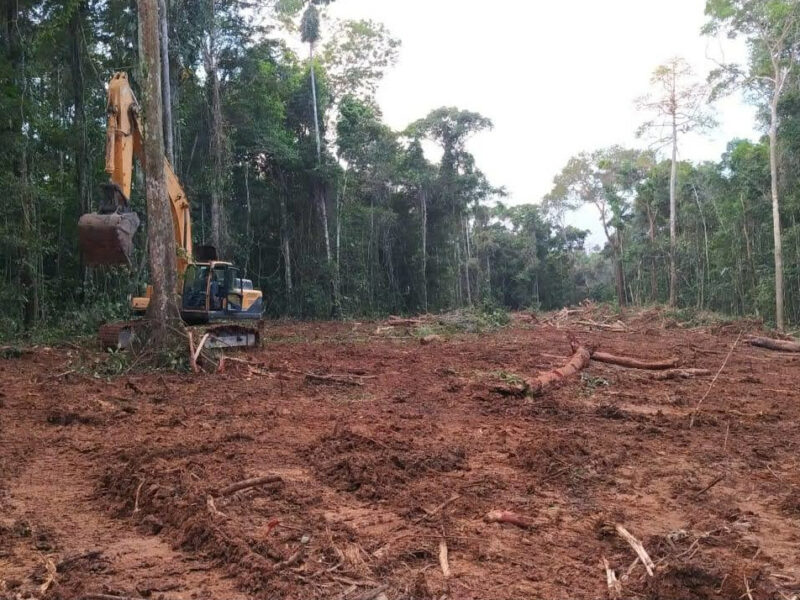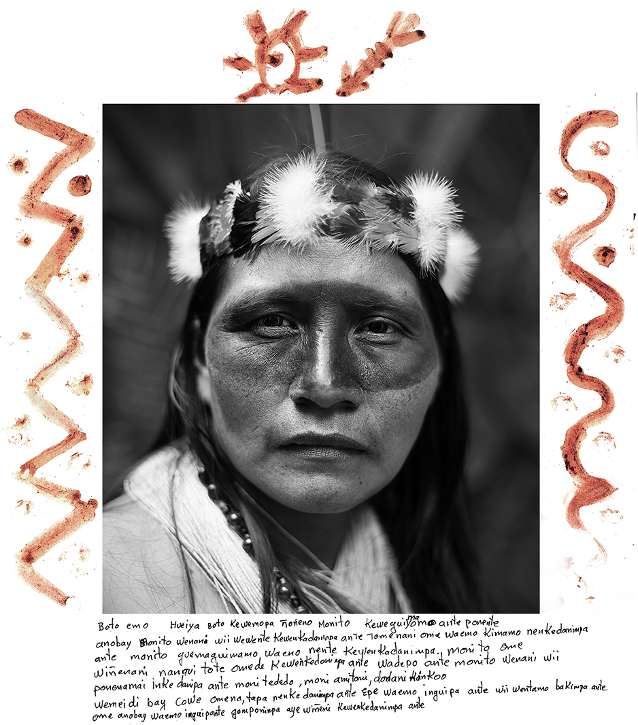
“My name is Hueiya. I live in the Waorani community called Ñoneno. I fight for my community, so that in the future our children don’t suffer and can live in peace breathing clean air. I fight so my children don’t have to suffer, so that their land continues to be fertile and free of pollution, so that our rivers continue to be clean so they can drink clean water. I fight for all children who are yet to be born in this earth.”
Meet Alicia Cahuilla – given name Hueiya – a courageous Waorani warrior from the Ñoneno community deep in the Ecuadorian Amazon. Alicia’s Waorani family has lived on the edge of Ecuador’s Yasuní National Park, one of the most biodiverse remaining wild places on the planet, for thousands of years. Like much of the Ecuadorian Amazon, until the 1960’s this ancestral territory was a pristine expanse of life-giving trees and clean flowing streams. Today Ñoneno is wedged between two bustling oil fields, Cononaco and Armadillo, where the Ecuadorian government is pushing to expand oil production into the heart of Yasuní. Alicia, who is also the vice president of the Waorani Indigenous Federation, does not agree and has voiced concerns to her community, federation, the Ecuadorian government and the world.
“We are struggling for Yasuní because it is our home. President Correa wouldn’t like it if oil companies went to his home and tore it down like they come and cut trees and build roads in our rainforest homes,” she told a crowd of women at an international Rights of Nature conference that included Yasuní ambassador Vandana Shiva.
Experts continue to state that in order to avoid the worst of impending climate change impacts, most of the planet’s remaining fossil fuel resources should remain under ground. Ecuador’s Yasuni-ITT initiative, launched in 2007, would have been an inventive plan to keep oil exploration out of the country’s most pristine rainforest and to protect Alicia’s homeland, the Waorani and the many other indigenous peoples living there. Ecuador abandoned the plan last year, and the global attempt to save the region now rests largely on the shoulders of the indigenous peoples and their NGO allies who have pledged to fight to keep oil companies out.
Alicia’s community is one that has taken on the fight to protect Waorani lands and their uncontacted nomadic relatives. Resource extraction, colonization and development have greatly reduced Tagaeri and Taromenane territory, placing these groups living in voluntary isolation at ever-increasing risk of contact and escalating violence and territorial conflicts. These forests are some of the last on Earth where people can still live freely and without contact.
“We have the richness of the forest and the river. We need for nothing, except what the oil companies destroy,” Alicia recently told a reporter in an article for CNN. “All the people [of Ecuador] need clean air to live. Clean water. With this oil development, what kind of life is the government actually hoping to give its people?”
The fight for the rainforest is on, and it doesn’t stop at Yasuní. Alicia and a coalition of Amazonian women have bravely taken the lead in a rapidly growing movement to protect their rainforest homelands across Ecuador. Last October, hundreds of women from seven Amazonian tribes embarked on a 219 km march to the nation’s capital, calling on the government to spare their ancestral lands from aggressive oil and mining policies. The women arrived in Quito carrying toddlers and waving colorful flags, their faces painted with natural dies in traditional patterns and symbols. Determined, they made their demands eloquently with a grace rarely seen.
While women have long played an active role in the historical struggle for indigenous rights in Ecuador, this was the first march in the nation organized and spearheaded entirely by women. As female givers of life, the women of the Amazon have felt a great responsibility to lead the fight against impending oil drilling and the destruction of pachamama, our “life giving mother earth.”
Over coming weeks we’ll share with you the stories of other bold women from the Ecuadorian Amazon who are defending their rainforest homelands through “Amazonas: Guardians of Life” – a series of “speaking” images combining portraiture with written testimonies and artistic expressions by photographer Felipe Jácome. The words and drawings on original prints are handwritten self-reflections of these women’s lives, culture, history, traditions and reasons for fighting against oil exploration in their ancestral lands. Amazon Watch, WECAN (Women’s Earth and Climate Action Network) and Acción Ecológica have supported the opening live exhibit of this series in Coca, Ecuador in what we hope will be the beginning of a regional, national and world tour.


